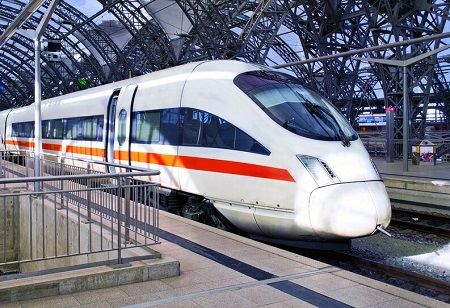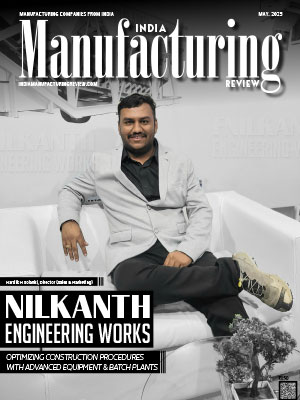
India’s First Bullet Train Prototype Production Starts Sept 2025
- BEML to begin bullet train prototype manufacturing in September 2025 with advanced safety and tech features.
- Two 8-coach trainsets operating at 249 kmph, costing Rs 866.87 crore, cheaper than Japan’s Shinkansen.
- Testing on Mumbai-Ahmedabad corridor by December 2026, funded mainly by JICA’s low-interest loan.
Bengaluru-based defence PSU, BEML (Bharat Earth Movers Limited), is set to produce a prototype of India's first bullet train in September 2025, in its existing plant, which also makes Vande Bharat sleeper trainsets. Design work is already underway, according to BEML Chairman and Managing Director Shantanu Roy, and once design work is done in a few months, production will start.
The project involves state of the art procedure for passenger safety, signalling, technical control and monitoring system, welding and sheet metal work. BEML will design, manufacture and commission two high-speed trainsets with eight coaches in each that can run at 280 kmph, previous awarded by the Integral Coach Factory ICF in October last year. Although speed trials will be conducted at 280 kmph, the trains and track will eventually run at a max speed of 249 kmph.
Shantanu Roy said, "The work is at the design stage right now. The critical design part should be over in a couple of months, and we will start the manufacturing activity by September".
Read more: Apple Boosts India Output as US iPhone Imports Jump 76% in April
The total project costs Rs 866.87 crore and each coach will cost Rs 27.86 crore - a considerable price advantage compared to Japan's Shinkansen coaches costing Rs 46–48 crore each. The first of the six coaches is expected by the end of FY26, after which a rigorous range of testing will occur, such as climatic chamber test and squeeze testing. In December 2026, the prototype will undergo oscillation and speed testing on the Mumbai-Ahmedabad High-Speed Rail corridor.
BEML has also engaged global agencies to support the design verification and testing so that independent assessment is possible to ensure compliance with safety protocols and safety system risks are comprehensively registered and controlled in their trainset.
"Once this coach is approved, there will be a bulk production of 15 more cars which won’t take much time...We are training our existing manpower, and ramping up the capacity to take on more rail projects", added Roy.



